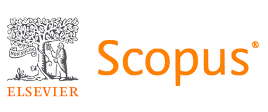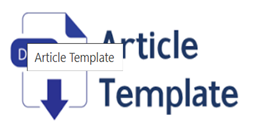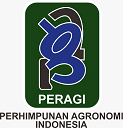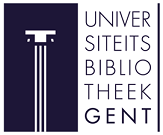Integrating Supply Chain Management into Food Estate Models for Enhanced Food Security
Abstract
This study analyzes the integration of supply chain management (SCM) within a food estate model on lowland swamp agroecosystems to strengthen national food security. A descriptive–analytical survey was conducted for eight months involving 60 farmers from three farmer groups in Muara Belida, South Sumatra. Performance was assessed using the SCOR v13.0 framework, value-added analysis (Hayami method), KPI weighting (ANP), and performance measurement (OMAX with Traffic Light System). Results show an overall SCM performance index of 7.892 (yellow category), with “Deliver” (8.280), “Make” (8.258), and “Return” (8.025) performing relatively well, while “Plan” (7.520) and “Source” (7.758) remain moderate. Policy and managerial implications highlight the need for farmer training, adoption of climate-resilient crop varieties, demand forecasting systems, and formal contractual partnerships to stabilize supply and reduce transaction costs. Findings further reveal that SCM integration enhances value addition at the farmer level and mitigates systemic risks, thereby contributing to food security by reducing logistics costs and building supply chain resilience. This research provides empirical evidence that incorporating SCM into food estate development constitutes a critical strategy for sustainable agro-industrial cluster management in lowland swamps and for achieving national food security.
Keywords
Full Text:
PDFReferences
Abdul-Rahman, M., Al-Kaabi, A., & Al-Saidi, M. (2023). Building resilience in Gulf food supply chains: Lessons from COVID-19. Food Policy, 115, 102420. https://doi.org/10.1016/j.foodpol.2023.102420
Agustina, B., Dwidjono, H. D., Slamet, H., & Jamhari, J. (2019). Supplier structure and performance evaluation of supplier network phase rice supply chain management in South Sumatra. Agraris: Journal of Agribusiness and Rural Development Research, 5(1), 7–20. https://doi.org/https://doi.org/10.18196/agr.5171
Agustina, B., Yulius, Y., & Erni, P. (2021). Design and planning of the porang supply chain in South Sumatra. Agriecobis: Journal of Agricultural Socioeconomics and Business, 4(2), 133–141. https://doi.org/https://doi.org/10.22219/agriecobis.v4i2.17407
Ahmad, N. F., & Mohammad, J. L. (2021). The urgency of food estate for national food security in the middle of the covid-19 pandemic. Journal of Government and Political Issues, 1(1), 35–44. https://doi.org/https://doi.org/10.53341/jgpi.v1i1.8
Ahmed, W., & Sundarakani, B. (2021). Evaluation of supply chain integration and resilience in agri-food networks. Journal of Business Research, 124, 394–405. https://doi.org/10.1016/j.jbusres.2020.11.056
Alsafana, R., Theresia, E. S., & Aginda, M. F. (2023). Analisis implementasi program food estate sebagai solusi ketahanan pangan Indonesia. Holistic: Journal of Tropical Agriculture Sciences, 1(1), 36–68. https://doi.org/10.61511/hjtas.v1i1.2023.183
Andhika, M. R., Yunita, Y., Agustina, B., & Riswani, R. (2023). Faktor-faktor yang mempengaruhi ketersediaan beras rumah tangga petani rawa lebak di Kecamatan Muara Belida di masa pandemi covid-19. Jurnal Lahan Suboptimal, 10(1), 72–83. https://doi.org/10.31119/jlso.63.61.072-083
Ashutosh, S., Amulya, G., & Vidhisha, V. (2025). Analysis of supply chain performance under the influence of social sustainability initiative of organizations. Operations and Supply Chain Management, 18(1), 65-78. http://doi.org/10.31387/oscm0600455
Azam, M., Vahideh, B. E., Pardis, R., & Azade M. (2025). A bayesian best-worst approach with blockchain integration for optimizing supply chain efficiency through supplier selection. Supply Chain Analytics, 9(100100), 1-15. https://doi.org/10.1016/j.sca.2024.100100
Arifin, B., Saharuddin, A., & Fauzi, A. (2022). Food estate policy and challenges in Indonesian agriculture. Sustainability, 14(7), 4208. https://doi.org/10.3390/su14074208
Basundoro, A. F., & Sulaeman, F. H. (2022). Meninjau pengembangan food estate sebagai strategi ketahanan nasional pada era pandemi covid-19. Jurnal Lemhannas RI, 8(2), 27–41. https://doi.org/10.55960/jlri.v8i2.307
Boipelo, K., & Alexander, S. (2025). Assessing the impact of supplier and customer relationships and third-party logistics on stock availability in Mahikeng grocery small and medium-sized enterprises. Journal of Transport and Supply Chain Management, 19(a1166), 1-11. https://doi.org/10.4102/jtscm.v19i0.1166
De Souza, R., Fernandes, E., & Gomes, C. (2022). Logistics integration in Brazilian soybean supply chains. International Journal of Logistics Management, 33(2), 456–478. https://doi.org/10.1108/IJLM-09-2021-0382
Diego, L. P. O., Sebastian, A. J., Andres, M. P. R., Jesus, G. F., & Juan, J. R. R. (2025). An integrated method to identify and improve logistical gaps. Supply Chain Forum: An International Journal, 26(3), 410-429. https://doi.org/10.1080/16258312.2024.2401317
Divya, S. (2014). Non-traditional security threats in the 21st century: A review. International Journal of Development and Conflict, 4(1), 60–68. https://doi.org/10.13140/RG.2.2.21789.49123
Hotden, L. N., Chandra, K. N., Wendi, S. S. W., Theresya, E., & Tohom, P. M. (2021). Strategi pengelolaan usahatani kelapa sawit rakyat masa pandemi covid-19 di Kecamatan STM Hilir Kabupaten Deli Serdang, Provinsi Sumatera Utara, Indonesia. Agro Bali: Agricultural Journal, 4(2), 260–275. https://doi.org/10.37637/ab.v4i2
Hugo, d. T., Christina, T., Martine, H. R., & Gauthier, C. (2025). Unraveling the urban ecosystem: An ethnographic study of logistics service providers. Journal of Supply Chain Management, 60(4), 79-91. https://doi.org/10.1111/jscm.12333
Islah, M., Prasetyo, Y., & Hidayat, R. (2021). Evaluating Indonesia’s food estate development: Lessons learned from past failures. Journal of Rural Studies, 87, 179–191. https://doi.org/10.1016/j.jrurstud.2021.07.012
Itang, H., Lestari, D., & Nugroho, R. (2022). Supply chain flexibility and performance in Indonesian agribusiness firms. Supply Chain Management: An International Journal, 27(5), 620–635. https://doi.org/10.1108/SCM-11-2021-0437
Juhandi, N., Priyono, A., & Suryadi, H. (2023). Sustainability challenges in food estate programs in Indonesia. Land Use Policy, 126, 106514. https://doi.org/10.1016/j.landusepol.2023.106514
Lula, L., & Efriza, E. (2020). The development of national food estate: The Indonesian food crisis anticipation strategy. Jurnal Pertahanan dan Bela Negara, 10(3), 229–248. https://doi.org/10.33172/jpbh.v10i3.1110
Markus, L., Alexander, Z., Marcus, W., Ole., H., Florian, D., & Frank, S. (2025). How to enhance company engagement in public-private emergency collaborations in the supply of essential goods. Journal of Humanitarian Logistics and Supply Chain Management, 15(1), 48-60. https://doi.org/10.1108/JHLSCM-12-2023-0133
Nathan, M., Erin, L., Daniel, M., Nancy, B.M., Nicholas, H., & Neil K.M., (2025). Resilient food security information systems in the age of disruption: An ecosystem approach. Food Policy, 137(102908), 1-3. https://doi.org/10.1016/j.foodpol.2025.102908
Najmah, N., Yudhi, S., Marisa, N., Hafiza, A., Yunara, Y., Rosyada, A., & Aprina, F. (2022). Descriptive epidemiology of covid-19 in Palembang, Indonesia. Public Health and Preventive Medicine Archive, 10(1), 56–68. https://doi.org/10.53638/phpma.2022.v10.i1.p07
Nchanji, E., Lutomia, C., & Beebe, S. (2021). Fragmentation and value-chain inefficiencies in African smallholder agriculture. World Development, 145(105528). https://doi.org/10.1016/j.worlddev.2021.105528
Nguyen, T., Pham, H., & Le, A. (2021). Digital platforms and agri-food traceability: Evidence from Vietnam. Computers and Electronics in Agriculture, 189, 106372. https://doi.org/10.1016/j.compag.2021.106372
Ozden, O., & Fusun, B. (2023). Measuring supply chain performance as scor v13. 0-based in disruptive technology era: scale development and validation. Logistics, 7(3), 65. https://doi.org/10.3390/logistics7030065
Park, Y.-E. (2022). Developing a covid-19 crisis management strategy using news media and social media in big data analytics. Social Science Computer Review, 40(6), 1358–1375. https://doi.org/10.1177/08944393211007314
Qori, N. F., Edi, P., & Muji, R. (2025). Performance test of vegetative characteristics of pigmented local rice at various levels of soil water content. Agro Bali: Agricultural Journal, 8(1), 92–101. https://doi.org/10.37637/ab.v8i1.2092
Purwanto, E., & Siregar, M. (2023). Revisiting Indonesia’s food estate: Policy coherence and governance gaps. Journal of Rural Studies, 95, 1–12. https://doi.org/10.1016/j.jrurstud.2023.02.012
Rahmawasiah, R., & I Nyoman, A. (2025). Diversity of insect types in new rice fields. Agro Bali: Agricultural Journal, 8(1), 317–324. https://doi.org/10.37637/ab.v8i1
Rohim, A., & Setiawan, A. (2021). The role of supply chain management in sustainable agriculture. International Journal of Production Research, 59(14), 4263–4277. https://doi.org/10.1080/00207543.2020.1868593
Salshabila, T. W., Asya, T. P., & Sabrina, E. D. (2021). Peran keuangan negara terhadap pembangunan food estate pada masa pandemi covid-19 dalam menjawab upaya ketahanan pangan dan kaitannya dengan isu lingkungan. Jurnal Acitya Ardana, 1(2), 175–183. https://doi.org/10.31092/jaa.v1i2.1370
Samah, M., Salah, O., & Ikram, A.H. (2025). Evaluating industry 4.0 technologies for supply chain optimization: A best-worst method approach. Operations and Supply Chain Management: An International Journal, 18(2), 215-223. http://doi.org/10.31387/oscm0610463
Sayyed, H. B. (2025). A System dynamics approach for leveraging blockchain technology to enhance demand forecasting in supply chain management. Supply Chain Analytics, 10(100115), 1-16. https://doi.org/10.1016/j.sca.2025.100115
Setiawan, D., & Hidayat, A. (2024). Challenges of lowland swamp agriculture in Indonesia. Environmental Science and Policy, 152, 55–65. https://doi.org/10.1016/j.envsci.2024.01.004
Tiara, K. N., Kya, K., Putri, S. R. R., Nisa, N. A., & Qulbi, S. H. (2025). Perkembangan food estate di Indonesia: analisis peluang, tantangan, dan ancaman secara domestik serta global. Jurnal Syntax Admiration, 6(2), 1099–1115. https://doi.org/10.46799/jsa.v6i2.2110
Xianwei, S., William, D.C.J., Yongjiang, S., Yufeng, Z., & Zheng, L. (2025). Harnessing the power of quasi–supply chains: Toward an ecosystem perspective for transformative supply chain management. Journal of Supply Chain Management, 61(1), 14-33. https://doi.org/10.1111/jscm.12335
Yunita, Y., Riswani, R., & Agustina, B. (2024). Income and expenditure analysis and coping mechanisms of rice farmer households in Muara Belida District Muara Enim Regency before and during the pandemic. Jurnal Agrisep: Kajian Masalah Sosial Ekonomi Pertanian, 22(01), 207–226. https://doi.org/10.31186/jagrisep.22.01.207-226
Zhang, Y., Liu, H., & Chen, X. (2022). Food supply chain resilience in China: Lessons from COVID-19. Food Control, 134, 108718. https://doi.org/10.1016/j.foodcont.2021.108718
Refbacks
- There are currently no refbacks.


























